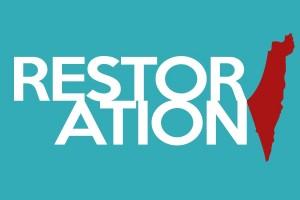By Stan Goodenough
Moshav is the Hebrew word for a co-operative, semi-collective settlement whose members work together to develop the land, increase the economy of the state and defend the nation. The concept of the moshav, along with that of the kibbutz, was born out of a time when Israel was facing a severe crisis in its endeavor to solidify its position in the Middle East and provide a haven for world Jewry.
The problems
During its early years of statehood, Israel faced an increasing number of problems, all threatening to thrust the fledgling nation into an irreversible crisis.
Enormous waves of Jewish immigrants were entering the country every year, and the government was faced with the daunting task of absorbing this new population. This was no simple task for a nation of only a few hundred thousand with limited resources, that had just fought a desperate war for its survival. Together with the absorbtion of this influx of immigrants, the government needed to disperse the people so as to decentralize the population from the three large cities of Jerusalem, Tel Aviv and Haifa.
Moreover, Israel was facing a severe security problem following its War of Independence. With much of the population concentrated in the three major cities, huge areas of land lay empty. This was due in large part to the flight of much of the Arab population during the war, whether out of fear, anticipation of returning to a “Jew-free” land following the war, or by being encouraged to do so by the neighboring Arab regimes. Additionally, Israel had gained control over huge tracts of land during the course of the war and the border regions were mostly unsettled. The result was that the country could readily be infiltrated by its enemies.
Another major problem confronting the fledgling state was the financial condition of the new government, which was basically bankrupt after the 1948-49 war. The country was not producing enough food for its population. A solution was needed, and needed fast.
The solution
Israel found its solution, in partnership with the Jewish Agency, in the concept of active and aggressive settlement of the land. The government, together with the Jewish Agency, embarked on a plan to settle hundreds of thousands of new immigrants in new or enlarged agricultural settlements in those areas of the country where security dictated it most.
The primary form of settlement agreed to by both the government and the immigrants was that of the moshav. The moshav is a semi-collective settlement where all members work together for the good of the community, but without living in the communal style of a kibbutz. During Israel’s first five years of renewed national existence, arouns 250 moshavim were established throughout the country.
Difficulty & success
The early years of the moshav movement were difficult to say the least. While this worthwhile enterprise went a long way towards solving the security problems of the young state, a great many of the new immigrants that were settled in the moshavim came from oriental countries and lacked substantial agricultural skills. In addition, many eastern immigrants did not feel any real connection with the land and balked at being located in small settlements where hardship and confusion due to the pressure and lack of resources were the norm.
As a result, many new immigrants who had been settled in the moshavim soon left for the urban slums of the larger cities. However, a number of ethnic immigrant groups, such as the Yemenite immigrants, proved up to the challenge and were quickly transformed into model farmers and pioneers dedicated to defending the nation.
In the 1960’s the number of settlements rose to well over 400, with moshavim surpassing kibbutzim as the favorite rural setting for Israelis.
Despite early difficulties and setbacks, the settlement program, including both moshavim an kibbutzim, was and remains a major success. The security threats in the barren border regions of the country have been adequately addressed, well over one million immigrants have been absorbed (many of them into settlements), and Israel now produces more than enough food for her entire population thanks to the efforts of Israel’s moshav pioneers.
Moshavim today
The moshavim today, along with the kibbutzim, have been somewhat modified. While moshavim continue to exist as co-operative enterprises, most are no longer self-sufficient. Most moshav members now work outside their settlements. Also, as the urban areas have expanded, they have absorbed a number of moshavim which have simply become suburbs of Israel’s many cities and towns.
Despite this, the moshavim have not diminished in their importance to or place in Israel. Moshavim continue to produce a disproportionate percentage of the nation’s agricultural output, while simultaneously being involved in a many industries, including tourism.
The security aspect of the moshavim is also in no way diminished today. Without these settlements, large areas of land in Israel would still be accessible to hostile infiltration.
The moshavim and kibbutzim have made an enourmous contribution to Israel’s success and security. The brave pioneers who chose to take on the hardships and dangers involved in creating these settlements certainly deserve our admiration.
© Israel My Beloved


